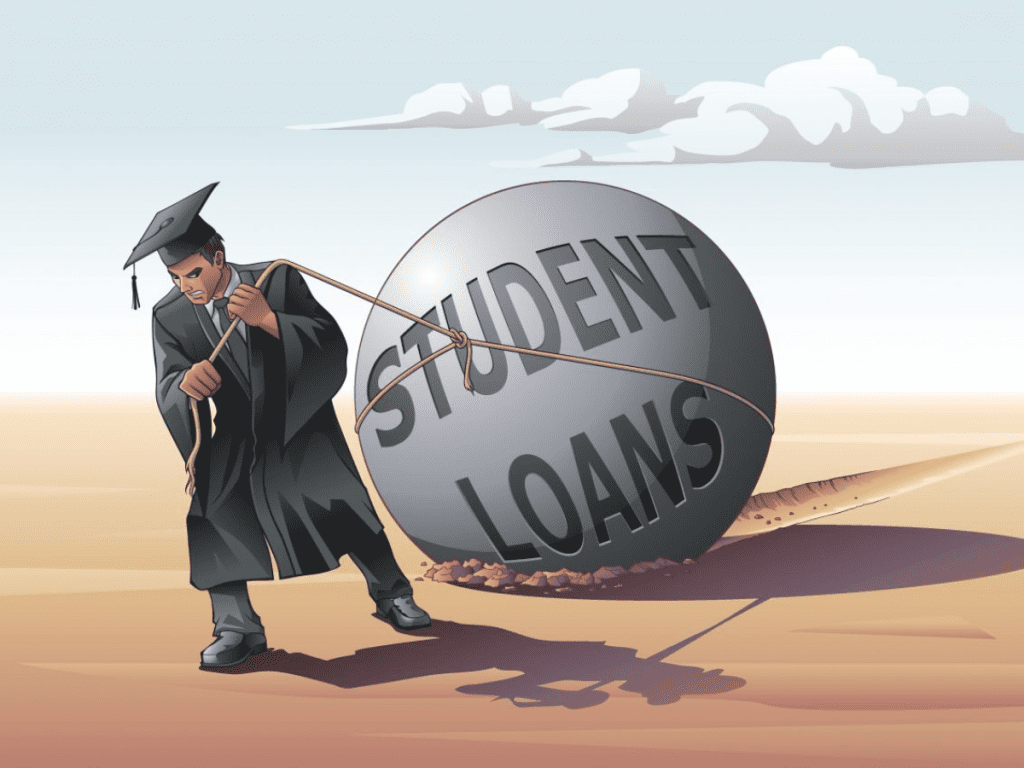Introduction
Paying off student loans can feel like a daunting task, but with proper budgeting and strategic planning, it’s possible to clear your debt faster than expected. Student loans often come with long repayment terms, which can make the total cost of borrowing significantly higher due to accrued interest. By focusing on budgeting and making thoughtful financial decisions, you can reduce the burden of student loans and achieve financial freedom sooner.
Understanding Your Student Loans
The first step to paying off student loans faster is to understand the specifics of your loans. This includes:
- Loan Type: Are your loans federal, private, or a mix of both? Federal loans often come with more flexible repayment options, while private loans may have stricter terms.
- Interest Rates: Knowing the interest rates for each loan helps you prioritize which loans to pay off first.
- Loan Balance: Keep track of how much you owe on each loan.
- Repayment Terms: Familiarize yourself with the loan’s term length and monthly payment requirements.
- Grace Periods and Deferments: Understand when payments are due and if any deferment or forbearance options are available.
Set a Clear Goal
Having a clear goal can keep you motivated and focused. Decide on a realistic timeline for paying off your loans and calculate how much extra you need to pay each month to meet your goal. Setting a specific target, such as becoming debt-free within five years, gives you a roadmap to follow.
Create a Detailed Budget
Budgeting is the cornerstone of any debt repayment strategy. Follow these steps to create a budget that prioritizes paying off your student loans:
- Track Your Income and Expenses Identify your sources of income and categorize your expenses. Include fixed costs like rent, utilities, and loan payments, as well as variable costs like groceries and entertainment.
- Cut Unnecessary Expenses Look for areas where you can reduce spending. Examples include dining out less, canceling unused subscriptions, or shopping for discounts.
- Allocate Extra Funds Toward Loans Any money saved from cutting expenses or additional income should be directed toward paying down your loans. Small sacrifices can lead to significant savings over time.
- Use the 50/30/20 Rule This rule suggests allocating 50% of your income to needs, 30% to wants, and 20% to debt repayment and savings. Adjust these percentages as needed to focus more on loan repayment.
Strategies to Pay Off Loans Faster
- Make Extra Payments Paying more than the minimum payment each month reduces the principal balance faster and decreases the amount of interest you’ll pay over time. Ensure your extra payments are applied to the principal, not future payments.
- Pay Biweekly Instead of Monthly By splitting your monthly payment in half and paying every two weeks, you’ll make 26 half-payments, or 13 full payments, each year. This method can shave years off your repayment term.
- Prioritize High-Interest Loans Focus on paying off loans with the highest interest rates first while making minimum payments on others. This approach, known as the avalanche method, minimizes the total interest paid.
- Consider the Snowball Method Alternatively, pay off the smallest loan balances first to gain momentum and a sense of accomplishment. Once one loan is paid off, apply its payment amount to the next smallest balance.
- Refinance Your Loans Refinancing can lower your interest rates and monthly payments, allowing you to pay off your loans faster. This option is most beneficial for private loans or federal loans with high interest rates. Be cautious, as refinancing federal loans will forfeit benefits like income-driven repayment plans and loan forgiveness programs.
- Use Windfalls Wisely Apply bonuses, tax refunds, or other unexpected income directly to your student loans. These lump-sum payments can significantly reduce your balance.
- Automate Payments Many lenders offer interest rate discounts for enrolling in automatic payments. This also ensures you never miss a payment, avoiding late fees and credit damage.
Increase Your Income
If your budget is tight, consider ways to boost your income. Additional earnings can accelerate your debt repayment. Options include:
- Part-Time Jobs: Take on a side hustle or freelance work in your spare time.
- Sell Unused Items: Declutter your home and sell items you no longer need.
- Ask for a Raise: If you’ve been performing well at your job, negotiate a salary increase.
- Explore Passive Income Streams: Consider investments, rental properties, or online ventures to generate extra income.
Take Advantage of Loan Benefits
- Employer Assistance Programs Some employers offer student loan repayment assistance as part of their benefits package. Check if your employer provides such programs and how to qualify.
- Loan Forgiveness Programs For federal loans, investigate loan forgiveness options like Public Service Loan Forgiveness (PSLF) or Teacher Loan Forgiveness if you meet the eligibility requirements.
- Income-Driven Repayment Plans While these plans extend the repayment period, they cap your monthly payment based on your income, freeing up funds to allocate toward higher-interest loans.
Avoid Common Mistakes
- Ignoring Interest Rates Focusing solely on the monthly payment can lead to paying more in interest over time. Always prioritize high-interest loans.
- Deferring Payments Unnecessarily While deferment or forbearance can provide temporary relief, interest often accrues, increasing the total cost of your loans.
- Relying on Minimum Payments Paying only the minimum ensures you’ll remain in debt longer and pay significantly more in interest.
- Overextending Yourself While it’s essential to focus on paying off loans, don’t neglect an emergency fund or other financial goals.
Stay Motivated
Paying off student loans is a long-term commitment, but staying motivated can make the process less overwhelming. Consider these tips:
- Celebrate Milestones Reward yourself when you reach significant milestones, like paying off a specific loan or reducing your total balance by a certain percentage.
- Visualize Your Progress Use a debt tracker or create a visual chart to monitor your progress. Seeing the numbers decrease can inspire you to stay on track.
- Stay Informed Keep learning about personal finance and debt repayment strategies to optimize your approach.
- Connect with a Support System Share your goals with friends or join online communities of individuals working toward debt freedom. Their encouragement can keep you focused.
Final Thoughts
Paying off student loans faster requires discipline, budgeting, and strategic planning. By understanding your loans, creating a detailed budget, and implementing targeted repayment strategies, you can reduce the time it takes to become debt-free. Additionally, boosting your income and leveraging loan benefits can accelerate your progress. While the journey may seem challenging, the financial freedom that comes with clearing your student loan debt is well worth the effort. Stay committed, adapt your plan as needed, and celebrate your achievements along the way.

